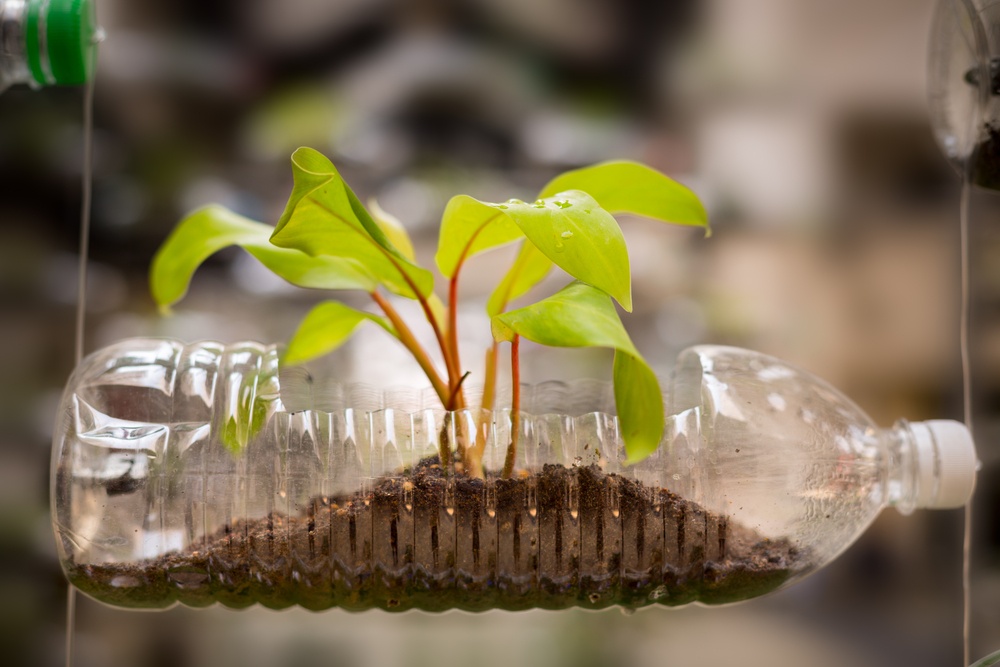
As reported by CNBC, both Brent crude (the international benchmark for oil prices) and U.S. West Texas Intermediate crude (the benchmark for oil prices in the United States) set three-year highs in mid-January, continuing a period of healthy growth that began last summer.
According to the International Energy Agency (IEA), however, traditional sources of oil consumption may not be the primary driver of this growth, at least not for long. The Agency’s World Energy Outlook 2017 report reveals that oil demand from passenger vehicles is actually set to decrease over the next two decades. In contrast, the largest hike in demand (6.2 million barrels per day) will come from a somewhat unexpected source: petrochemicals.
While high-value petrochemicals have a wide array of applications, a significant majority of them — around 70%, per the IEA report — are ultimately used to manufacture plastics. Common petrochemicals like ethylene and propylene are particularly crucial to the mass production of plastics — it takes one ton of the former to make 160,000 plastic bags — and oil companies have taken notice, especially as traditional consumers such as the automotive industry continue to push for alternative energy sources.
“We’re expecting petrochemicals to grow 4% per year,” says Saudi Aramco CTO Ahmad Al-Khowaiter. “[This is] an opportunity we’re really trying to leverage.”
According to the IEA, demand for ethylene and propylene will increase by 60% between 2016 and 2040. Similarly, the Ellen MacArthur Foundation predicts that the manufacture of plastics will account for one-fifth of all global oil consumption by 2050.
That said, the growing popularity of petrochemicals is not without its drawbacks. In fact, the Ellen MacArthur Foundation insists that the unchecked proliferation of petrochemical-derived plastics is a significant threat to sustainable living. “If the current strong growth of plastics usage continues as expected, the emission of greenhouse gases by the global plastics sector will account for 15% of the global annual carbon budget by 2050, up from 1% today,” explains the Foundation’s recent report, The New Plastics Economy: Rethinking the Future of Plastics.
Concerns over the environmental — and financial — costs of petrochemicals is driving a number of companies to explore a novel approach to plastics manufacturing: bioplastics. While petrochemicals have been the industry standard since plastics were first mass produced in the 1950s, they’ve primarily been used as a matter of custom (and, until recently, cost). In reality, organic materials like wood, corn, vegetable oils, sugarcane, and even banana peels are all adequate substitutes for petrochemicals in most plastics manufacturing processes.
“Today, there is a bioplastic alternative for almost every conventional plastic material,” European Bioplastics notes. “Depending on the material, bioplastics have the same properties as conventional plastics and offer additional advantages, such as a reduced carbon footprint or additional waste management options such as industrial composting.”
The business case for bioplastics is getting stronger by the day. From a high-level perspective, the afterlife of plastic packaging take a significant toll on overall economic productivity.
According to a World Economic Forum report, “After a short first-use cycle, 95% of plastic packaging material value, or $80-120 billion annually, is lost to the economy. A staggering 32% of plastic packaging escapes collection systems, generating significant economic costs by reducing the productivity of vital natural systems such as the ocean and clogging urban infrastructure.”
What’s more, certain bioplastics have become cost-competitive with — if not cheaper than — petrochemical-derived plastics. For instance, Mike Hamilton, CEO of alternative energy startup Renmatix, claims that bioplastics derived from his company’s patented Plantrose process are cost-competitive with traditional plastics as long as per-barrel oil prices are between $40 and $50. Outside of a brief several-month interval at the end of 2015, per-barrel prices haven’t dipped below $40 for nearly a decade (the current price is hovering around $60).
This increasingly strong business case is already driving a great deal of growth in the bioplastics sector. While bioplastics currently account for a mere 1% of the world’s annual plastic production, global bioplastics production capacity will expand from 2.05 million tons in 2017 to 2.44 million tons in 2022. Even more impressively, production capacity of polylactic acid — an innovative biodegradable biopolymer — is set to expand by 50% over the same period.
Major companies like Coca-Cola and LEGO have provided a blueprint for what a strong corporate commitment to bioplastics should look like. In 2009, the soft drink giant unveiled its first polyethylene terephthalate (PET) bottle containing 30% bioplastic content, and six years later it announced its first PET bottle made entirely from bioplastics. By 2020, the company plans to use its patented “PlantBottle” for all beverages. Similarly, LEGO has invested nearly $165 million in researching, developing, and implementing new, more sustainable raw materials for its iconic bricks — including, potentially, bioplastics.
At Mattei, we’re committed to doing our part to make the world a healthier, more sustainable place. Our rotary vane compressors provide superior energy savings across varying levels of air demand, enabling manufacturers of all kinds to rest easy knowing that their air compression needs are being met as efficiently and effectively as possible.

Mattei offers a wide range of vane compressor models that perfectly meet the specific needs of the transport industry.
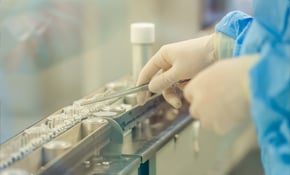
The reliability of Mattei compressors, the high quality standards of the delivered compressed air and the compliance with the industry regulations, make them ideal to be used in the healthcare and pharmaceutical industry.
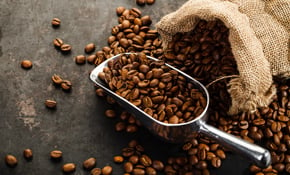
Reduced operating costs, environmental sustainability and extreme purity of the air supplied make Mattei compressors suitable for all processes in the food industry.

Good luck ThorSport Racing. Waiting to watch the racing!
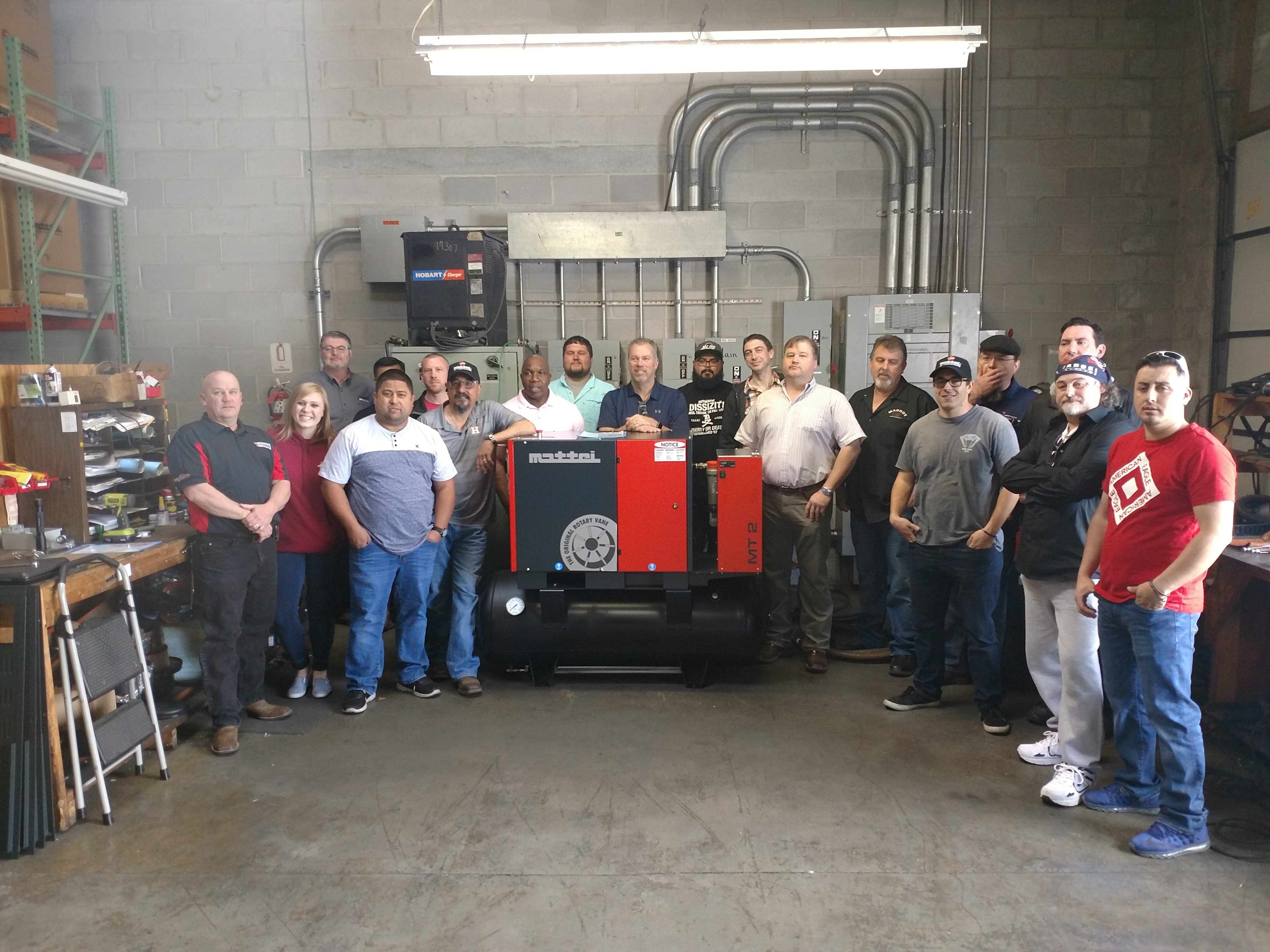
We recently held our Spring 2018 Service School for distributors. The school graduated 17 participants from both the sales and service sides.

Today, Mattei Compressors, Inc., announced the recipients of its 2017 Distributor Awards. These distributors went above and beyond to provide high-quality service to Mattei customers over the past year.
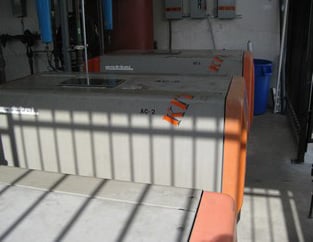
Helix Medical, LLC is widely regarded as a premier supplier of biocompatible silicone medical devices and components to the medical device, pharmaceutical and biotech industries.
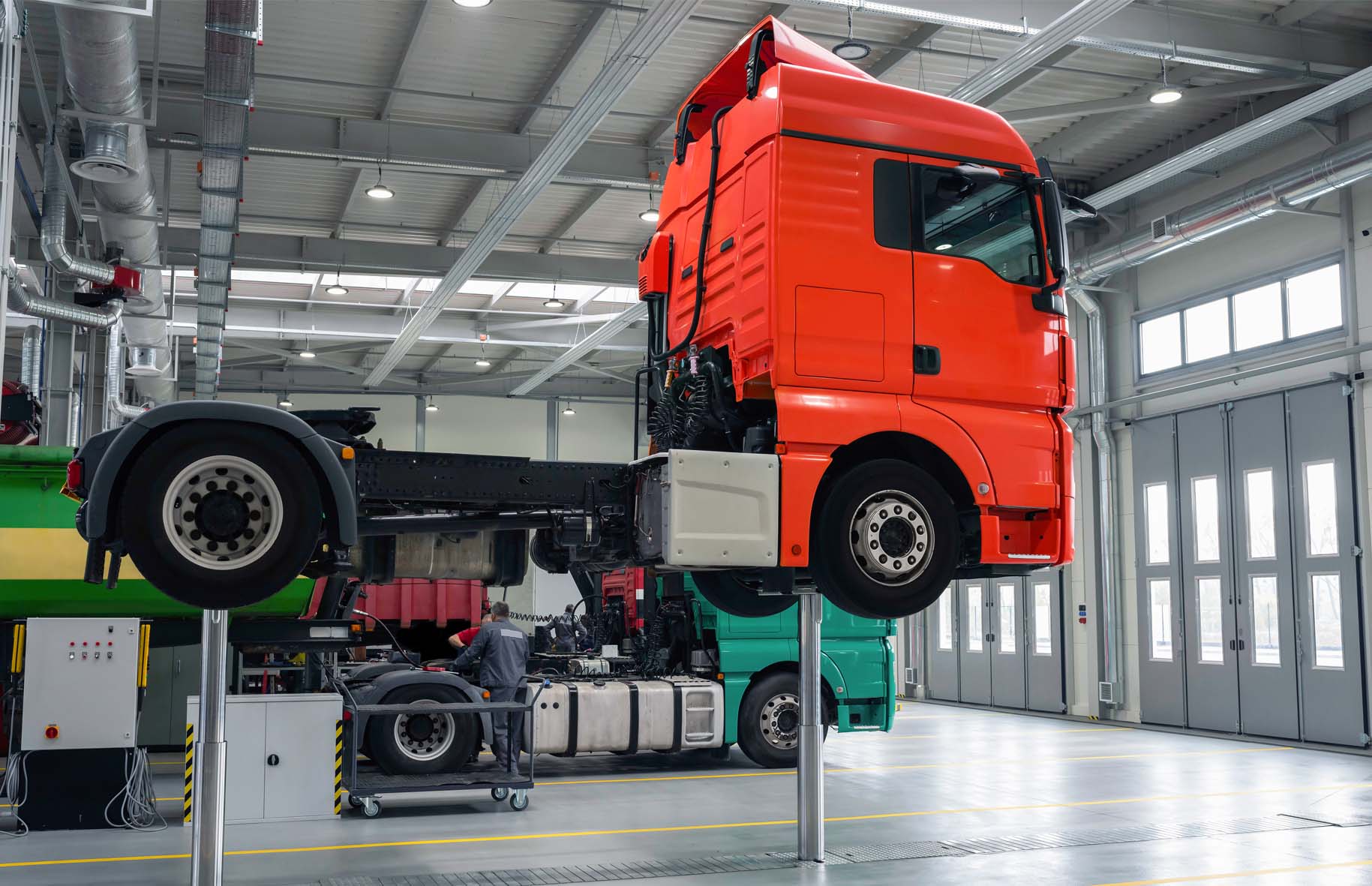
John Baker Sales, a Mattei distributor located in Colorado, worked very closely with Transwest to ascertain the company’s needs prior to making a product recommendation.


